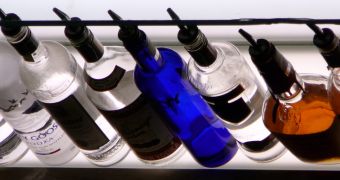The conclusions of a new study appear to indicate that people who taste alcohol earlier on in their lives than peers are more likely to use it as a means of coping with daily stress and unpleasant situations.
The correlation was found to extend over several decades, say German investigators from the Central Institute of Mental Health (CIMH) in Mannheim. They were in charge of the new survey.
According to the group, the study was carried out on 306 German children. All of them were selected from a larger study, the only separation factor being a higher risk or predisposition for alcohol use.
This level of risk was assessed based on past experiences, exposure to alcohol consumption in their households, and so on. The participants were questioned several times, including as teenagers and at the age of 22, the team says.
Experts paid special attention to test subjects that reported passing through a higher number of stressful life events than their peers. Among them, those who began to drink at the age of 13 were more likely to use alcohol to cope with the stress they were experiencing.
At the same time, those who began using alcohol later as teens reported drinking about half the amount those in the other group did. The questionnaires the experts applied focused on the months leading up to the time when the participants were interviewed (recent alcohol consumption habits).
“We found that the impact of stressful life events on drinking behavior depends on the age at first drink. The earlier they start with alcohol use, the stronger the association between life stress and drinking in young adults,” CIMH senior researcher Dorothea Blomeyer says in a statement.
The behavior “seemed to occur only when individuals suffered from stressful life events such as severe job problems, but not after daily hassles that produce an everyday stress load,” adds Rainer Spanagel.
He holds an appointment as a professor of pharmacology at the University of Heidelberg, in Germany, and is also the coauthor of a new paper detailing the findings. The work will appear in the June 2011 issue of the medical journal Alcoholism: Clinical and Experimental Research.
According to the researchers, the reasons why this connections exist is still unclear, but they most definitely merit further investigations, LiveScience reports.
“It could go back to physiological effects of the alcohol, priming the developing brain and its reward circuits and making it very rewarding to drink alcohol under stressful circumstances,” Blomeyer says.
“This stronger reinforcement could result in a preference for alcohol drinking as [a] stress coping strategy,” the expert concludes.

 14 DAY TRIAL //
14 DAY TRIAL //